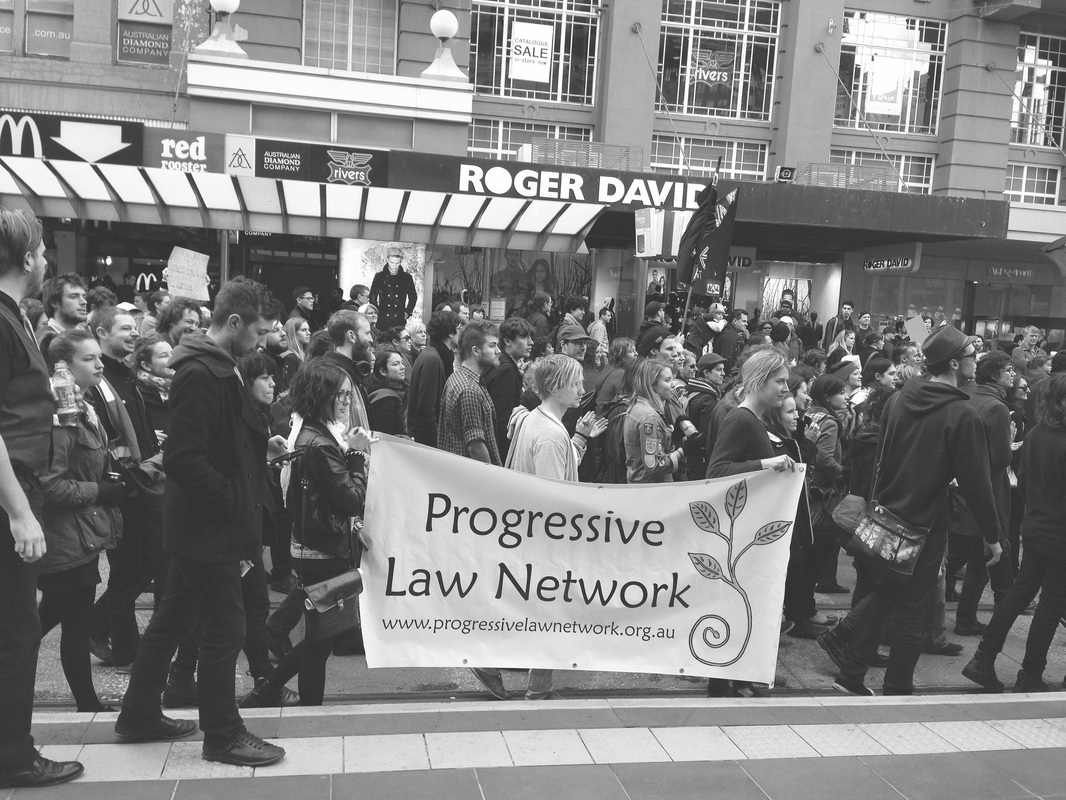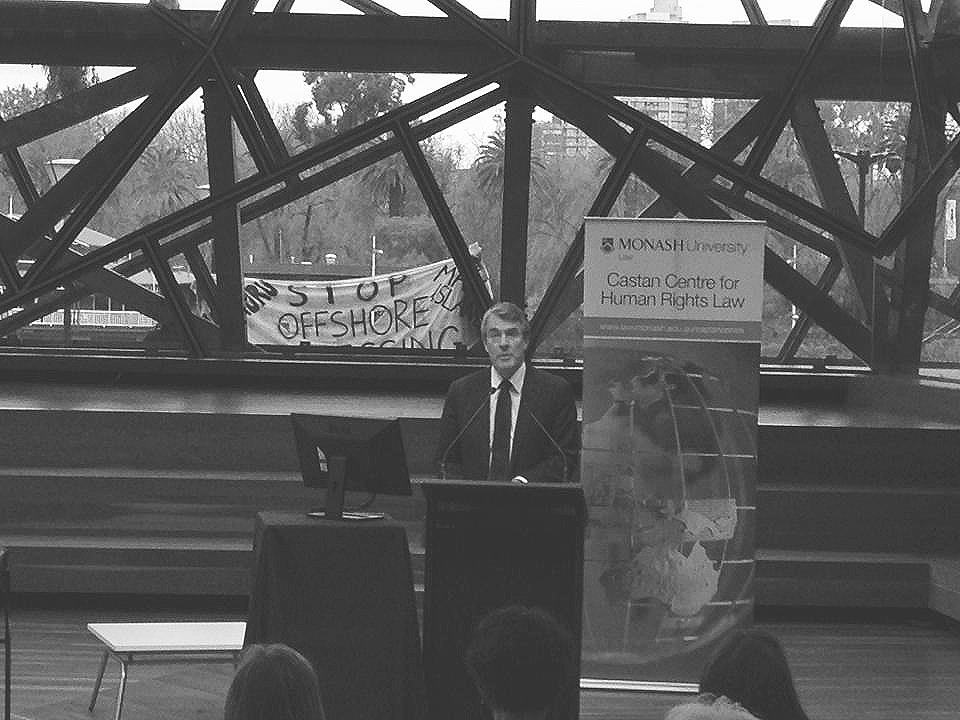|
EQUITY UNCLE
Volume 4, Issue 1, (Originally Published on Monday 29th July 2013) Dear Equity Uncle, A ‘friend’ of mine went out of her way to spoil a show I’ve been waiting to watch, things to do you know. I hate spoilers so much! First, what’s the statute of limitations on spoilers? Second, how do I respond? Spoil everything she loves? Plant a mole in her organisation and get it off course? []
0 Comments
Reegan Grayson-Morison
Volume 4, Issue 1, (Originally Published on Monday 29TH July 2013) The image of the amoral/immoral lawyer and a corrupt justice system, championing the rights of the ruling class has been present since the days of Plato and is ever-present in mainstream culture today (Boston Legal, Suits, etc.). As the saying goes, there is no smoke without fire, so what is it that changes in the mindset of the many pious law students who start out wanting to change the world and campaign on the platform of justice and equality for all? Understandably, many law students aspire to practice, and having a big corporate firm foot the bill for their practical legal training is a difficult offer to turn down – if you are lucky to get it. Notwithstanding the fact that many studying law already come from privileged backgrounds, entry into this even more elite club inevitably means that you will become a well-compensated tool for the biggest corporations that operate in Australia. As much as these corporations may appear to be community-focused and environmentally friendly, and appeal to other populist ‘left’ ideals are in vogue, they will engage in morally dubious activities which you will assist or facilitate to ensure maximum profits flood back into their coffers (likely located in some offshore tax haven). Don’t worry though. You will look good while you’re doing it (cha ching!), and perhaps when you’ve earned enough, you can work pro bono for the refugees/workers/environment. The diamond in the rough, the law student who chooses the path of the community advocate, also faces challenges when it comes to bringing justice to the masses. Not only are you likely to be overworked and underpaid, you also have some of the most complex legislation to deal with. Who would have thought that the legislature, while championing access to justice in creating regulations on pay-day loans and consumer leases targeting society’s most disadvantaged, would make it hard to understand? Silly you! Even Chapter 6 of the Corporations Act on takeovers (renowned for its complexity) pales in comparison. And, when you do have a win, such as the M70 case, you can be sure that Parliament will legislate with barbed wire around the ratio to ensure no one can touch their precious vote-winning, discriminatory policy. Maybe it’s the system that’s broken; the system that breaks us. For all the ‘morality’ and theory we learn about at law school, for all the good that our lecturers spend so many hours trying to instil in us, ‘the real world’ puts many roadblocks in the way of harnessing the law to achieve what we believe is right. Reegan Grayson-Morison Dean R. P. Edwards
Volume 4, Issue 1, (Originally Published on Monday 29TH July 2013) Word is that an election is imminent. I don’t remember the date of the election, but I’m fairly certain that’s not my fault. But it’s pretty apparent an election is near. For what other reason would politicians be afoot, spruiking forward-thinking policies that electrify the voting population? Of course, forward-thinking is one way to characterise the Australian Government’s latest asylum seeker and refugee policy. By that, I mean the policy is looking beyond the present state of affairs, without answering the real demands of a situation in which thousands of human beings are being embroiled in personal and financial catastrophe. One would hope that the continuing plight of millions of innocent human beings, robbed of their homes and any chance for a dignified life in their countries of origin, could raise the bar of Australian politics above electioneering and slogan-based policies. Instead, what Australians on either side of this issue get is a crisis on top of a crisis. The Papua New Guinea ‘Regional Resettlement Agreement’ forebodes legal challenges, a lack of effective planning and serious doubt about its long-term viability. What’s more, this government has shamefully spent taxpayer money – at least $400,000 at last count – on pushing this policy in Australian media. So much for a cleaner politics, a little more than a decade after the Tampa incident. As human rights advocate David Manne opined, as reported on page one, will this poorly designed, thinly veiled election ploy lead to another stolen generation of downtrodden human beings? One to whom we, as a nation, will have to apologise in twenty years’ time? One hopes not, but only if our politicians came to their senses immediately and reverse this deplorable policy. However, that may be wishful thinking, and what we, as citizens with voices and votes, can do is protest this policy and the mindset behind it and similar ploys. And with our vote (on this issue and many others), we might send to Canberra politicians and ideas that speak to our virtues, and not to an enduring but shameful record of ignoring the plight of human beings in need. Dean R. P. Edwards  Alexandra McGushin Volume 4, Issue 1, (Originally Published on Monday 29TH July 2013) The sense of solidarity was strong among the thousands gathered in Melbourne’s CBD last Saturday, to express their dismay and outrage over Prime Minister Kevin Rudd’s recent Papua New Guinea ‘Regional Resettlement Arrangement’. In the crowd marching from the State Library were members of the Progressive Law Network (PLN), an independent network of students, professionals and community leaders who work together for positive social change. The protest’s speakers and many signs held up by crowd members expressed great shame felt due to Rudd’s policy change. Many speakers claimed the federal government is manipulating the law for political gain, running counter to fundamental legal principles and Australia’s obligations under the international 1951 Refugee Convention. The PLN took part in the protest because the group believes there is “a tremendous impetus for change and [that] proclaiming passionately held beliefs in the form of protest is an essential element of democracy”, McGushin told De Minimis. McGushin added that “protests have educative value and reduce risk of overexposure to government- and media-filtered viewpoints”. The PLN membership run public forums, develop policy submissions and hold an annual conference where speakers discuss topical issues in law reform and social justice. Prospective members can get involved with the PLN by sending an e-mail to [email protected]. The next collective action on refugee and asylum seeker rights is at 5.30 pm this Friday, 2 August 2013, under the clocks at Flinders Street Station. More locally, outside Baillieu Library on Melbourne University’s main campus, the Campus Refugee Rights Collective will be holding a snap action rally at 2 pm this Wednesday, 31 July. The rally includes a number of speakers, and is endorsed by the campus Amnesty International. Alexandra McGushin  Raoul Renard Volume 4, Issue 1, (Originally Published on Monday 29TH July 2013) The Castan Centre for Human Rights Law’s annual conference held in Federation Square received a surprise appearance from protestors last Friday night. The protestors comprised members of the Victorian branch of the Refugee Action Collective (RAC), who were rallying against the ‘PNG agreement’ unveiled by Prime Minister Kevin Rudd the week prior. They were forcibly removed from the venue and surroundings by Victoria Police. Barred from entering the Deakin Edge theatre, where federal Attorney General Mark Dreyfus was giving the opening address, protestors lined the glass walls holding banners, reading ‘Stop Offshore Processing’ and ‘Refugees are Welcome: Close Nauru. Close Manus’. Dreyfus continued speaking and embarked on a pottered history of Australia’s engagement with developments in international human rights law. Nevertheless, the thump of angry hands upon the glass walls and cries of ‘Shame, Dreyfus, shame!’ echoed through the theatre. Dreyfus paused to remark that such forms of peaceful protests were not conducive to constructive debate, and then proceeded to praise former Prime Minister Malcolm Fraser’s increase in the intake of Vietnamese boat refugees in the 1970s, citing it as a welcome improvement upon Australia’s earlier regional engagement. Somewhat paradoxically, Dreyfus followed up with a spirited defence of the PNG arrangement and its accordance with Australia’s international legal obligations. Prior to Dreyfus’ summation and question and answers, police officers removed the protestors from the building surrounds. The Castan Centre later released a statement through their official Twitter account, stating: “The Castan Centre did not request the removal of the protestors this morning. We believe in the right of peaceful protest.” An RAC media correspondent said that the police would not give a definitive answer as to who had requested the protestors’ removal, and that his megaphone had been confiscated by police officers. No one was arrested. The annual conference included many other respected academics and legal practitioners, such as the inimitable feminist Eva Cox, Pakistani lawyer and advocate for drone strike victims Shahzad Akbar and Refugee and Immigration Legal Centre director David Manne, who is well known as a human rights champion. On the PNG arrangement, Manne posed the question: “Are we in the midst of the creation of a new ‘damaged generation’ – one that will occasion a prime ministerial apology in 25 years’ time?” Manne was also highly critical of the federal government’s amendments to the Migration Act, which followed the ‘M70 Malaysia Solution’ case. He stated that the ‘national interest’ discretionary power conferred upon the Immigration Minister constitutes a grave subversion of the rule of law. Raoul Renard |
AuthorWrite something about yourself. No need to be fancy, just an overview. ArchivesCategories |

 RSS Feed
RSS Feed
